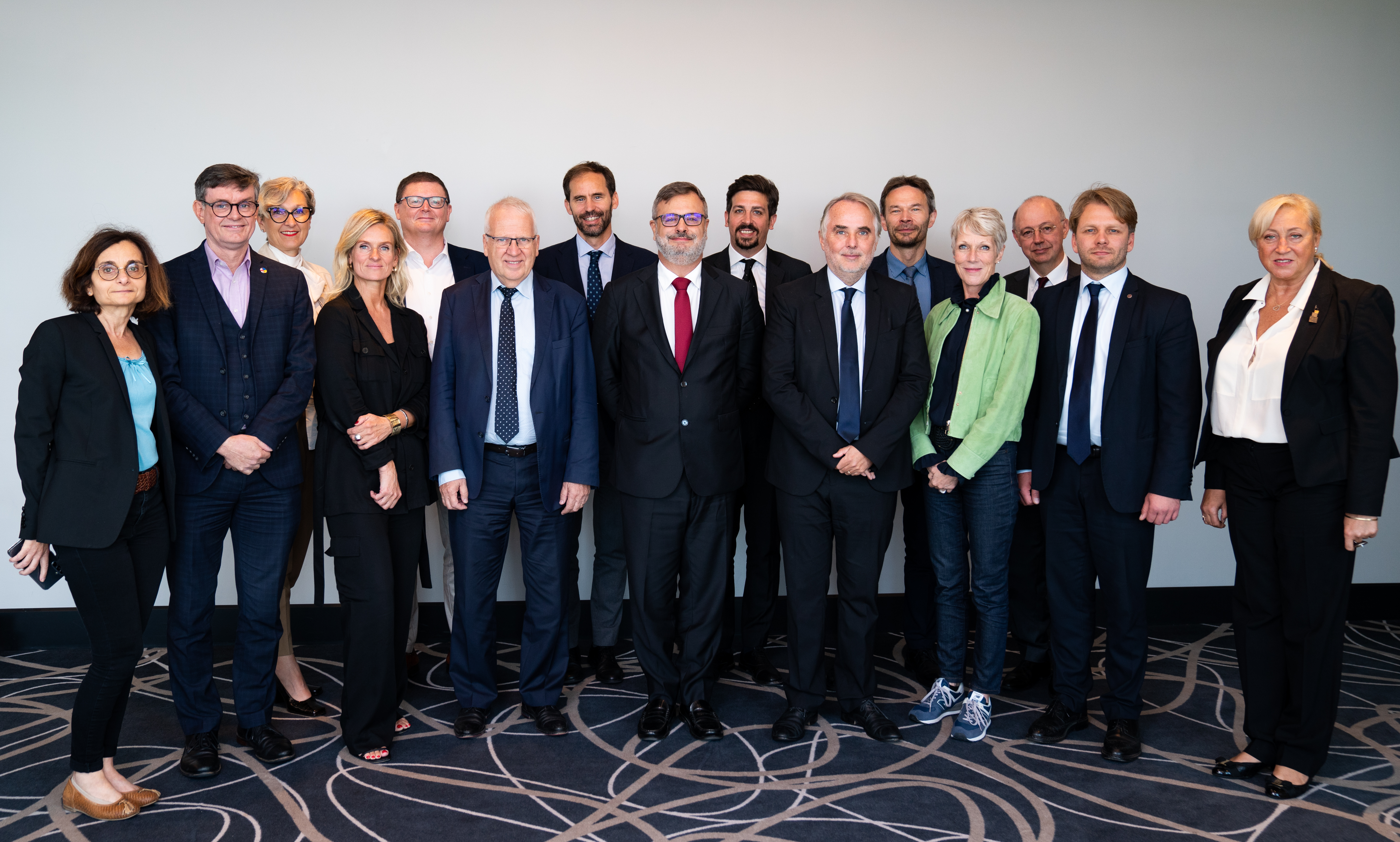
Yesterday, September 21, SJSC “Latvijas dzelzceļš” in Riga hosted a meeting of the European Management Committee of the International Union of Railways (UIC). During the meeting, various matters important for the development of the railway industry and progress with different projects were discussed: railway digitization and sustainability matters, including construction of overhead lines and opportunities for reducing the cost thereof, use of energy alternatives to diesel, the potential for innovation in railways, and others. Before the meeting, Rinalds Pļavnieks, Chairman of the Board at SJSC “Latvijas dzelzceļš” (LDz), together with representatives of the UIC management presented to the media the most important challenges in the railway industry at the moment, the current UIC developments and objectives.
SJSC “Latvijas dzelzceļš” Chairman of the Board Rinalds Pļavnieks: “UIC is a very important platform for development, cooperation, legislative initiatives, where different operational issues are also addressed. It is very important for LDz to participate in the organization’s task forces, where the present and the future of the entire railway industry is shaped – it is important for us to be part of these development processes.”
UIC Director General François Davenne: “The UIC is an organization with a long history, and our main task is to create practical solutions to make the transition from other modes of transport to railways as easy as possible and also financially viable. It is the transition to rail as the backbone of transport that is the best way to make the world and European countries carbon neutral by the 2050 target date. The UIC has partly achieved its objectives: common rail standards are used almost everywhere in Europe, with just a few exceptions. At the same time, Great Britain, for example, has switched to the same common standards as elsewhere in Europe.”
Martin Frobisher, UIC Regional Assembly Europe Chair, Group Safety and Engineering Director, Technical Authority at British “Network Rail”: “The biggest challenges faced by the UIC are environmental and sustainability issues, and our main objective is to get millions of private and freight vehicles off the road and switch them to rail transport. To this end we need to address such issues as making railways a more economically viable mode of transport, and to electrify railways at the lowest cost possible. That is the task of the UIC – to share ideas and options for different solutions to achieve these sustainability goals.”
Sandra Gehenot, UIC Europe Regional Coordinator: “Speaking of different track gauges in different countries, including Latvia, I would like to emphasize the Rail Baltica project, which will connect the Baltics with the rest of Europe through the European gauge railway infrastructure. Rail Baltica will also be an important corridor for freeing up the mobility of passengers and freight. Railways are equally important for a country’s sustainability: we see the example of Ukraine, where railways play a huge role when the country is in such a difficult situation – this is also an item on the UIC agenda.”
The UIC is an international organization that coordinates cooperation amongst railways at a worldwide level, promoting harmonized operation of railway systems. The organization has 194 members from all over the world. The UIC develops standards and fosters innovation in railway development, its main objectives include financing for infrastructure development, digitization of railways, and comfortable, connected mobility.

